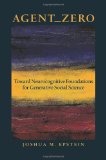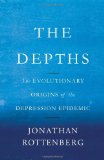new book – ‘The Future of the Mind: The Scientific Quest to Understand, Enhance, and Empower the Mind’ by Michio Kaku
February 25, 2014
The Future of the Mind: The Scientific Quest to Understand, Enhance, and Empower the Mind by Michio Kaku (Doubleday, 2014)
(kindle ed.), (amazon.co.uk), (UK kindle ed.)
Book description from the publisher:
The New York Times best-selling author of Physics of the Impossible, Physics of the Future and Hyperspace tackles the most fascinating and complex object in the known universe: the human brain.
For the first time in history, the secrets of the living brain are being revealed by a battery of high tech brain scans devised by physicists. Now what was once solely the province of science fiction has become a startling reality. Recording memories, telepathy, videotaping our dreams, mind control, avatars, and telekinesis are not only possible; they already exist.
The Future of the Mind gives us an authoritative and compelling look at the astonishing research being done in top laboratories around the world—all based on the latest advancements in neuroscience and physics. One day we might have a “smart pill” that can enhance our cognition; be able to upload our brain to a computer, neuron for neuron; send thoughts and emotions around the world on a “brain-net”; control computers and robots with our mind; push the very limits of immortality; and perhaps even send our consciousness across the universe.Dr. Kaku takes us on a grand tour of what the future might hold, giving us not only a solid sense of how the brain functions but also how these technologies will change our daily lives. He even presents a radically new way to think about “consciousness” and applies it to provide fresh insight into mental illness, artificial intelligence and alien consciousness.
With Dr. Kaku’s deep understanding of modern science and keen eye for future developments, The Future of the Mind is a scientific tour de force–an extraordinary, mind-boggling exploration of the frontiers of neuroscience.
Google Books preview:
See also: Author’s website






